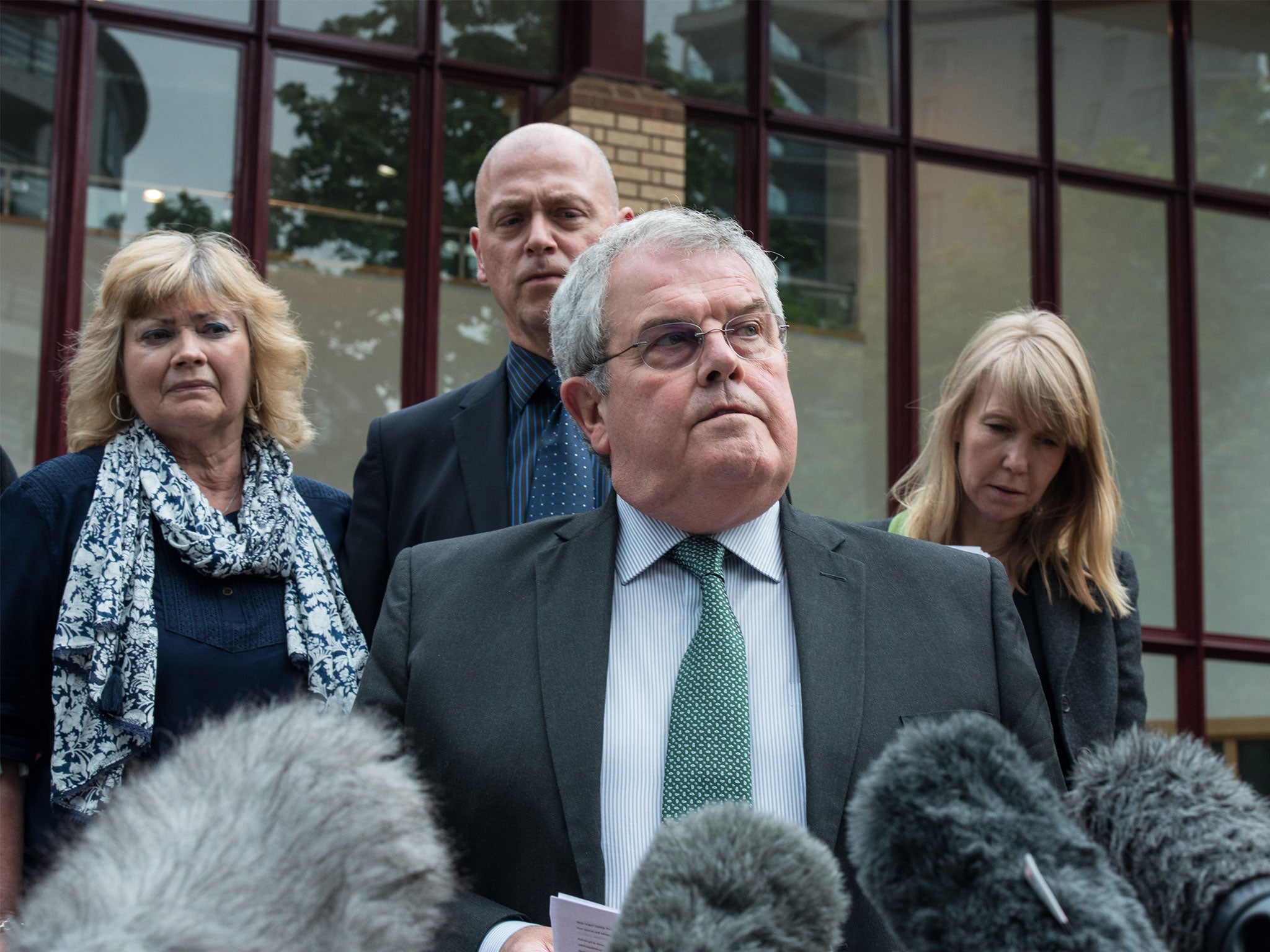Public inquiry into Deepcut barracks could be held as "best method" of getting to the truth, says army chief
General Sir Nick Carter said an investigation into culture at Deepcut Barracks could be the key to finding out what happened to 18-year-old Private Cheryl James

Your support helps us to tell the story
From reproductive rights to climate change to Big Tech, The Independent is on the ground when the story is developing. Whether it's investigating the financials of Elon Musk's pro-Trump PAC or producing our latest documentary, 'The A Word', which shines a light on the American women fighting for reproductive rights, we know how important it is to parse out the facts from the messaging.
At such a critical moment in US history, we need reporters on the ground. Your donation allows us to keep sending journalists to speak to both sides of the story.
The Independent is trusted by Americans across the entire political spectrum. And unlike many other quality news outlets, we choose not to lock Americans out of our reporting and analysis with paywalls. We believe quality journalism should be available to everyone, paid for by those who can afford it.
Your support makes all the difference.A public inquiry into life in Deepcut barracks could be held if it is the “best method” of getting to the truth, the head of the army has said.
General Sir Nick Carter apologised “unreservedly” to the parents of Private Cheryl James after an inquest ruling she had killed herself also criticised the care available to soldiers at Deepcut barracks.
The army chief said the armed forces “need to get to the truth” of what happened.
Speaking on BBC Radio 4’s Today programme, he said: “If that’s the best method of getting to the heart of the matter then I guess that should be the way that we go”.
Gen Carter said he was committed to making the Army “genuinely inclusive” and vowed the service would be “sure to learn” from the inquest.
Ms James’s father, Des James, called the barracks a “toxic and horrible environment for a young woman” and said “we have no doubt that this would have had a terrible impact on those that were required to live in it”.
The family expressed “immense disappointment” at the suicide verdict and have called for a public inquiry to be taken into the culture at Deepcut.
Speaking after a coroner found there was no evidence of unlawful killing in James’s death, her father said he believed the evidence led to a different conclusion.
Gen Lord Dannatt, a former chief of the general staff, also called for a public inquiry into the culture of bullying and intimidation at the barracks on BBC Newsnight on Friday.
Yes there should be a public inquiry,” he said. “I think that’s the only practical and reasonable response to this because I think people have a right to know.”
“But I would stress again that if there are individuals who went through training at Deepcut or indeed elsewhere and believe that they suffered bullying or sexual harassment, that’s not been investigated, they should complain. If they’re still serving, to the service police or to the civilian police.”
Writing in the Daily Telegraph, Gen Carter apologised to Ms James’s parents for the “duty of care failings” at Deepcut in 1995.
“After the comprehensive inquest into Cheryl's death that concluded yesterday, we will be sure to learn from the recommendations made in the coroner's conclusions,” he said.
“The tragedy of Cheryl's death has taught us some hard lessons and will serve as a constant reminder for me and for all of those who both lead and serve in the Army of the importance of ensuring all of our people are valued and have the opportunity to flourish.”
After hearing three months of evidence from more than 100 witnesses, coroner Brian Barker QC ruled the 18-year-old died from an intentionally “self-inflicted shot” from her rifle at Deepcut Barracks.
Her body was found near an entrance gate on November 27 1995, not far from where she had been carrying out lone guard duty at the Surrey army base.
She was one of four recruits who died there over seven years.
The inquest heard heavy drinking was commonplace at the training camp, where some instructors and officers “saw young females as a sexual challenge”.
The army’s head of personal services, Brigadier John Donnelly, also apologised following the coroner’s verdict and said the military was “truly sorry for the low levels of supervision that we provided for the trainees at Deepcut in 1995, and for the policies that were applied to using trainees for guard duties, and that we took too long to recognise and rectify the situation.”
Join our commenting forum
Join thought-provoking conversations, follow other Independent readers and see their replies
Comments